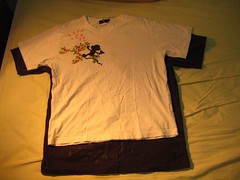What is the major product when concentrated HBr reacts with prop-2-en-1-ol?
Question by Gahan: What is the major product when concentrated HBr reacts with prop-2-en-1-ol?
My answer is OH group is substituted by Br and also addition of HBr according to Marckownikoff Rule will give me 1,2-dibromopropane.
But the correct answer is : 3-bromoprop-1-ene which means the region of double bond will remain unsaturated and only -OH substitution by -Br will occur.
This is what I am not getting. Help with explanation really needed.
Best answer:
Answer by Mark Collins
I would suspect the question given was only aimed to test you on nucleophilic substitution, and completely neglected the possibility of electrophilic addition. I believe this is a design flaw while the question was prepared.
However, if you insist the answer is correct, it may be explained by the negative inductive effect of the halogen atom (bromine) decreasing the electron density at the double bond, rendering it less susceptible to electrophilic attack. However, I am uncertain if the decrease in the electron density due to negative inductive effect alone is sufficient to inhibit electrophilic attack by electrophiles. I severely doubt that the extent of negative inductive effect of bromine atoms alone is sufficient to inhibit electrophilic attack by electrophiles. Even if that is true, given the hydrobromic acid used is concentrated, it should be enough to raise the rate of electrophilic addition.
Your answer is most likely correct.
Know better? Leave your own answer in the comments!


